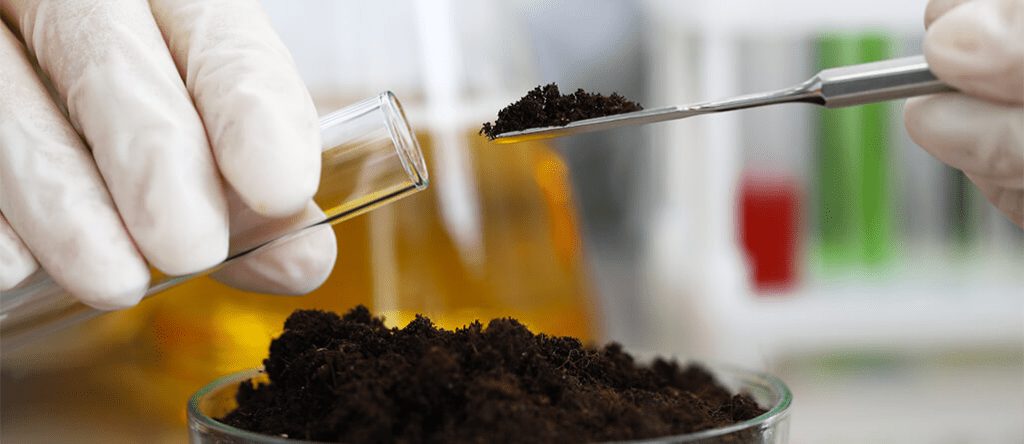Hey there, onion enthusiasts! Welcome to the Onion Doctor’s ultimate adventure into the world of soil testing—a game-changer for growing the juiciest, most flavorful onions you’ve ever tasted! Think of your soil as the heartbeat of your farm: get it right, and your onions will thrive like never before. In this fun and fact-packed blog, we’ll dive into the why, how, and wow of soil testing, turning you into a soil whisperer who can unlock the secrets of the earth. With a sprinkle of science and a dash of excitement, let’s unearth the magic beneath your fields and grow onions that steal the show!

REASONS FOR SOIL TESTING IN ONION FARMING
Soil is more than just dirt—it’s a living, breathing ecosystem that holds the key to your onion crop’s success. Onions are picky about their growing conditions, and soil testing helps you unlock the mystery of what’s happening beneath the surface. A proper soil test reveals:
- Nutrient Levels: Are your onions getting enough nitrogen, phosphorus, or potassium?
- pH Balance: Onions love slightly acidic to neutral soil (pH 6.0–7.0). Too acidic or alkaline? Your crop could suffer.
- Organic Matter: Healthy soil teeming with organic matter supports robust onion growth.
- Hidden Issues: From salt buildup to nutrient deficiencies, soil tests catch problems before they ruin your harvest.
By testing your soil, you’re essentially giving your onions a personalized health checkup. Think of it as a visit to the “ Doctor” for your fields!
PROCEDURE ON SOIL TESTING
1. Gather Your Tools: What You’ll Need
Soil testing starts with the right equipment. Here’s what you need:
- A clean spade.
- A clean Panga.
- A clean bucket (avoid metal to prevent contamination).
- Ziplock bags or soil sample containers.
- A clean Soil Auger if available.
- A soil testing kit (home kits are great for quick checks) or access to a professional lab.
2. Collecting the Perfect Soil Sample
To get accurate results, you need a representative sample. Here’s how:
- Choose the Right Spots: Divide your field into zones based on soil type, crop history, or visible differences. Take samples from each zone.
- Dig Deep: For onions, collect soil from 6–12 inches deep, as their roots reach this depth.
- Mix It Up: Take 10–15 small samples from each zone, mix them in a clean bucket, and remove rocks or debris.
- Bag It: Place about a cup of the mixed soil in a labeled bag for testing.
Fun Fact: Collecting samples in a zigzag pattern across your field ensures you capture the soil’s diversity!
3.Testing Your Soil: DIY vs. Lab Testing
You have two options:
- DIY Soil Testing Kits: Affordable and quick, these kits test pH, nitrogen, phosphorus, and potassium. Perfect for small farms or quick checks.
- Professional Lab Testing: Labs provide detailed reports on micronutrients, organic matter, and more. Ideal for large-scale onion farmers.

4. Understanding Your Soil Test Results
Your soil test report might look like a science puzzle, but here’s how to decode it:
- pH Level: Onions thrive at pH 6.0–7.0. If it’s too low, add lime; if too high, add sulfur.
- Nitrogen (N): Essential for leafy growth. Low nitrogen? Your onions may have yellowing leaves.
- Phosphorus (P): Supports root development. Deficiency can stunt bulb growth.
- Potassium (K): Boosts disease resistance and bulb quality.
- Organic Matter: Aim for 2–5% for healthy soil structure.
- Micronutrients: Zinc, magnesium, and sulfur are critical for onions.
5. Taking Action: Fixing Your Soil
Once you have your results, it’s time to play soil doctor:
- Adjust pH: Add lime to raise pH or sulfur to lower it. Test again after 2–3 months.
- Boost Nutrients: Use fertilizers tailored to your test results. For example, a 10-10-10 fertilizer balances N-P-K.
- Add Organic Matter: Compost or cover crops improve soil health and water retention.
- Irrigation Tips: Onions need consistent moisture. Test soil drainage to avoid waterlogging.
The Onion Doctor’s Top Soil Testing Tips
- Test Early: Test your soil 2–3 months before planting to allow time for amendments.
- Keep Records: Track your soil test results year-over-year to spot trends.
- Work with Experts: Consult local agronomists for region-specific advice.
- Stay Curious: Experiment with small test plots to try new soil amendments.
Contact us for: Onion seedlings, Garlic seedlings, Germinated garlic cloves, Farm planning services, Soil testing, training on onion and garlic growing, Drip irrigation installation and maintenance, Agronomic support, Onion and Garlic value pack and Farm management. For free consultation, placing orders or booking a visit with an agronomist, please contact us via Call or what’s app +254703982228, Email: Info@oniondoctor.co.ke. You can also check out our social media handles for daily updates on TikTok: https://www.tiktok.com/@oniondoctorke?_t=ZM-8wmsTu0qumO&_r=1 Instagram: https://www.instagram.com/oniondoctorke?igsh=MTVoaHF3aWUydTJzaQ==Facebook:https://www.facebook.com/share/16SwgYn2dG/ Youtube:https://youtube.com/@oniondoctorke?si=u5Jnd-r0qU9UDYqL and Twitter: https://x.com/OnionDoctorKe?t=FR3JXlS_oN1vjjUgAtfyzg&s=09


